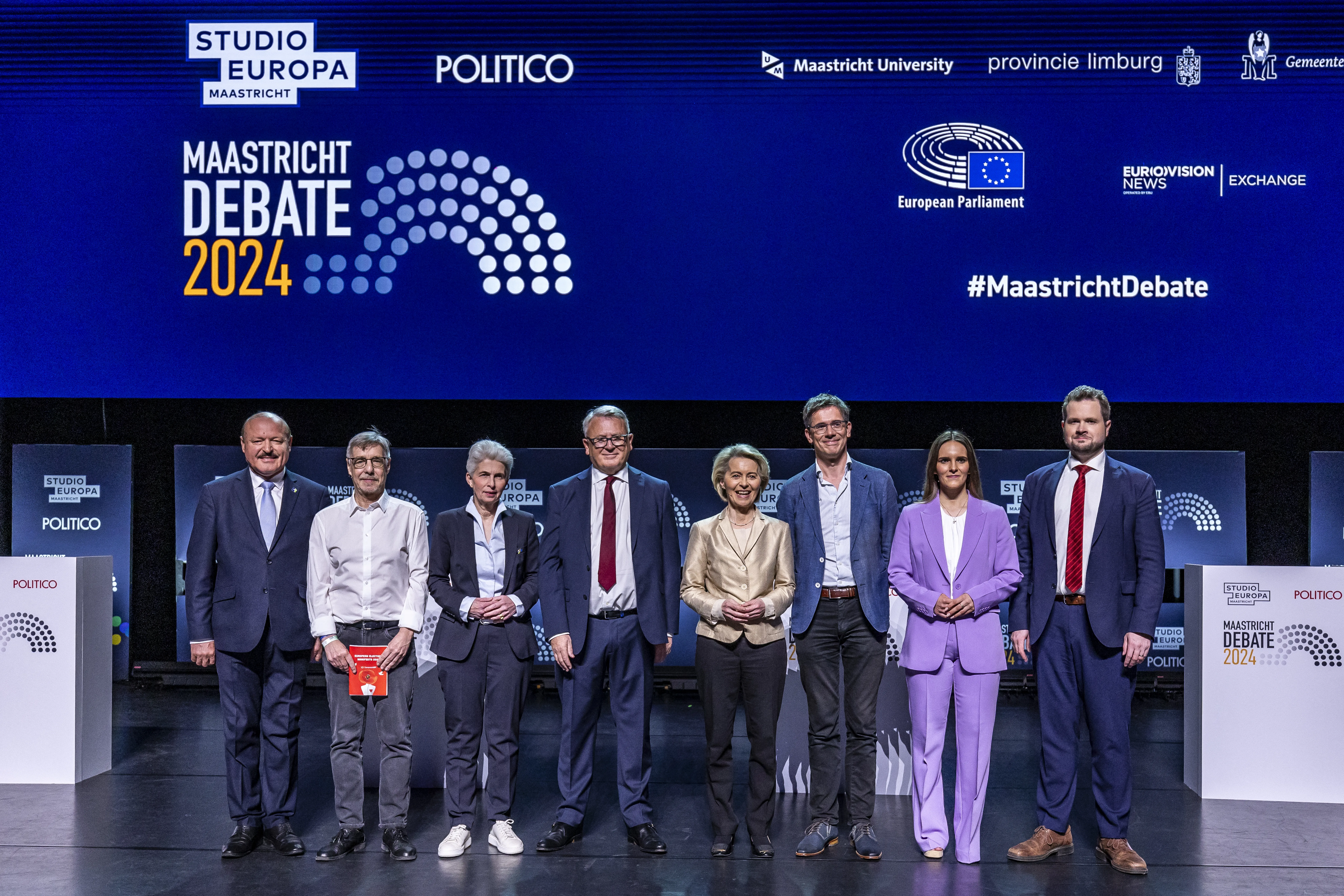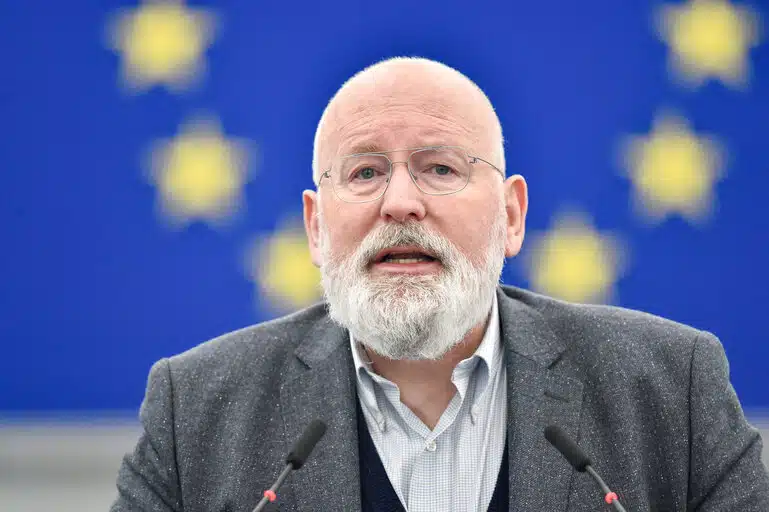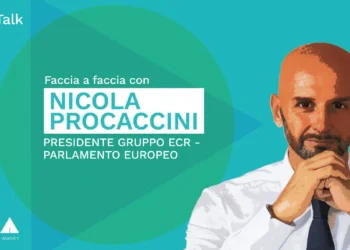Brussels – It has been the hallmark of the European legislature in the home stretch, at least until the last few months. Then, in the face of the protests of farmers and the discontent of a part of the European productive world, the Green Deal was first put in the dock and quickly downsized even by those who had wanted to use it as their banner. With one month before the election, in the manifestos of most European political parties, the Green Deal takes a back seat, sacrificed on the altar of European competitiveness to be revived and common defence to be built. But its implementation has only just begun,starting with two of the three parties that formed the backbone of the so-called “Ursula majority.”
The European People’s Party (EPP), the family to which Ursula von der Leyen herself belongs, has, over the year, split on some of the Green Deal’s most significant legislative dossiers, rebranding itself as the farmers’ party and criticizing its overly ideological framework. “The European Green Deal was born out of the need to protect people and the planet, but it was also conceived as an opportunity to build our future prosperity,” clarifies EPP’s electoral program, after addressing Ukraine, defence, foreign policy, irregular migration, terrorism and organized crime, violence against women, and European competitiveness.
PPE and liberals pledge allegiance to the Green Deal but change priorities
“As we enter the next phase of the Green Deal, the implementation phase, we will continue to support European industry during this transition, from the Zero Emissions Industry Act to the Critical Materials Act,” the People’s Party manifesto continues. reiterating its ambition to support the decarbonization of European industry, “essential for our future competitiveness,” the EPP stresses that “without a competitive economy, there can be no sustainable climate protection either.” And it launches an attack against the Greens and Social Democrats: “For us, the Green Deal is not a new ideology, but the hallmark of the more prosperous, innovative, competitive, and sustainable Europe that the EPP envisions.”
The focus is on the risk of deindustrialization to be averted, support for business, and defence of the principle of technology neutrality. Meaning that the EU “must leave room for private, local, and industrial actors to find appropriate technological solutions,” because “it should be engineers, and not politicians, who decide together with the market the best technology to achieve carbon neutrality.” The EPP promises an implementation of the Green Deal “always taking into full consideration the interests of our citizens and entrepreneurs, but also “the needs of cities and regions in the preparation of environmental, energy, and climate strategies and related financing.”

Liberals of Renew Europe also pledge allegiance to the Green Pact, which, in the list of the ten election priorities, finds space after defence, competitiveness and the rule of law. “It’s time for implementation,” the manifesto reads, however, dotting the i’s on the polarization of the climate debate in recent months. According to Renew, farmers, “angry and rightly so,” have been portrayed by some on the left as “climate enemies” while the right is “using their discouragement to ignite a war against climate policies.” The liberals promise “concrete proposals to get out of the black-and-white debate we have fallen into and simplify farmers’ lives for the benefit of all citizens.”
An alliance between social and ecological policies: PES and Greens for a new “green and social” pact
The Green Deal is far higher on the list of priorities of the European Socialist Party, but it is a “new green and social pact,” a “Green Deal with a red heart” that finds its foundation in the alliance “between social and ecological policies.” The Socialist family and the party’s candidate for the presidency of the European Commission, Nicolas Schmit, will hold a conference in Rotterdam on Saturday, May 11—together with the Spitzenkandidat of the European Greens, Bas Eickhout—with the emblematic title We are united for our Europe. Former European Commission Vice President responsible for the Green Deal, Frans Timmermans, will also attend. Reinforcing the understanding with the Greens—harshly criticized for their alleged green ideologism by a part of the productive world and politics—would be an important political signal, interpretable with the ambition of the European Socialist Party to play the role of the true guardian of the implementation of the European Green Deal.
“We profoundly disagree with the approach of conservatives who see sustainability as the enemy of farmers,” the Socialist manifesto continues, “our fight for the Green Deal is also a fight to improve the lives of farmers. On the one hand, strengthening the Common Agricultural Policy, supporting farmers’ incomes while protecting them “from unfair competition from third countries and speculation and allowing fair prices in the value chain.” On the other supporting farmers “financially and technically to achieve transition goals to environmentally friendly farming methods.”
In their manifesto, the Greens embrace the same refrain: “Climate justice and social justice are two sides of the same coin,” a testament to the new course they want to set, together with the socialist family, for the Green Deal. A “Green and Social Deal,” a massive investment plan so that the fight against economic inequality and the protection of climate and nature go hand in hand. “We must have the courage to do what is necessary,” states the election manifesto of the European ecological family.
To the right and left of the “Ursula majority”, the call for a thorough revision of the Green Deal
At the antipodes is the program of the right-wing and far-right parties, the European Conservatives and Reformists (ECR) and Identity and Democracy (ID). Although it has not presented any written program ahead of the June elections, the latter has already demonstrated in the current term its aversion to the Green Pact designed by the European Commission, elevating Climate Commissioner Timmermans to public enemy number one for EU businesses and citizens. Similar position to that of the political family led by Giorgia Meloni, which in its manifesto calls for a “revision of the Green Deal,” with an approach “opposite to that promoted by the EU in the last five years”. The ECR proposes a “more balanced and localized climate strategy that does not forget ordinary people and prioritizes socio-economic issues over socio-economic welfare.”

The former Executive Vice-President of the EU Commission, responsible for the Green Deal, Frans Timmermans [Strasbourg, February 14, 2023. Photo: European Parliament]
Concretely, the ECRs promise to “prioritize the implementation of existing legislative requirements and secure the necessary funding to do so” and only at a later stage “consider new regulations,” standing at attention to protect “citizens, farmers, and businesses from the negative impacts of the current overly ideological green climate policy.” Similarly, ECR is “firmly committed to conducting a thorough review” of the current Common Agricultural Policy. “We have had enough of the bureaucracy of the CAP, and we will make efficiency our top priority,” the election manifesto proclaims.
On the opposite side of the EU Parliament political spectrum, the European Left speaks out against a Green Deal that “remains stuck in a framework of reconciliation with the capitalist system of production that must be overcome.” The CAP also needs to be rewritten entirely, aiming to ” gradually abolish the system of allocating funds on the basis of surface area and redirecting them toward sustainable and environmentally friendly agriculture.” Promoting a model of sustainable small farms and “healthy food where products have a short commercial circuit.”
English version by the Translation Service of Withub









